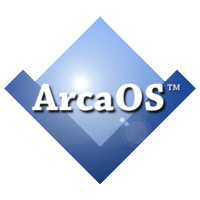If you’re a current ArcaOS 5.0 licensee, the upgrade to ArcaOS 5.1 is available at a discount. With a valid ArcaOS 5.0 Support & Maintenance subscription, your discount is even bigger (plus, your remaining 5.0 subscription time will be added to the included 5.1 support term).
To upgrade and download your 5.1 ISO, visit your customer portal page and select the ArcaOS Download Center link on the navigation panel to the left. Click the Upgrade to 5.1 button, and proceed to checkout.
Once you’ve completed the checkout process, your initial ArcaOS 5.1 ISO will be built in English. When other languages are available for ArcaOS 5.1, you may request any additional ISOs (free of charge, as long as your Support & Maintenance subscription remains in effect) from your ArcaOS Download Center by selecting the Build ISO again button and selecting the language you would like.
Once an ArcaOS 5.0 license has been upgraded to ArcaOS 5.1, support and updates for the 5.0 license will cease. Not all ArcaOS 5.1 associated downloads will be applicable to 5.0, and licensed updates for one version are specifically not licensed for use with the other version.
If your original ArcaOS 5.0 license order contained more than one license and you only wish to upgrade one or some of them but not all, please contact support.
See this post for a summary of pricing options for ArcaOS 5.1 upgrades.

 Arca Noae is pleased to announce a minor update to our PNG Icon Set included with ArcaOS, which is now available as part of the Support & Maintenance subscription for your
Arca Noae is pleased to announce a minor update to our PNG Icon Set included with ArcaOS, which is now available as part of the Support & Maintenance subscription for your